THE MONETARY SYSTEM # 1 (The Barter)
The Barter
Trade is as old as society, and originated because no human collectivity is capable of producing everything it needs to live. This difficulty was what led to the commercial exchange between different peoples.
The first forms of trade between men consisted precisely in the exchange of hand-to-hand products: what one had and did not need, was changed by what the other had and did not need. That form of exchange is called barter.
The Exchange",** or changes of some goods by others, rudimentary form that still subsists in some less civilized towns. But this exchange, or change fo useful vines, made it difficult to expand commercial relations, and this in turn impeded the growth of productive activities.
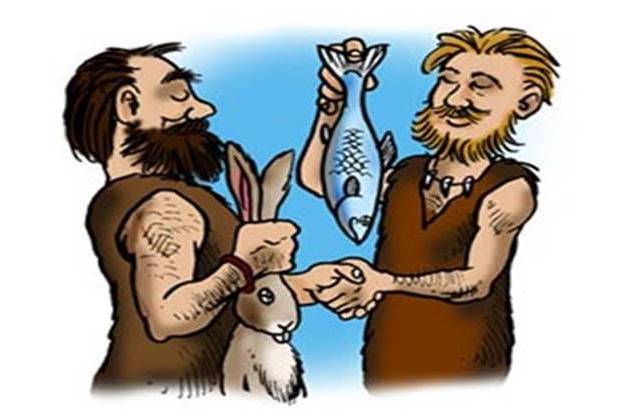
Barter is the exchange of material goods or services for other objects or services, and differs from the usual sale and non-intermediation of money as a representative of the value in the transaction. The contract by which two people access a barter is called an exchange.
Source
This is supposed to start when someone collected more than he needed and required more of those he needed.
Barter is a practice that has existed since the Neolithic era; Approximately 10,000 years, with the appearance of the activity of agriculture and livestock.
The first exchanges originated in markets where a large variety of articles, for example: spears, shoes, necklaces and even agricultural products.
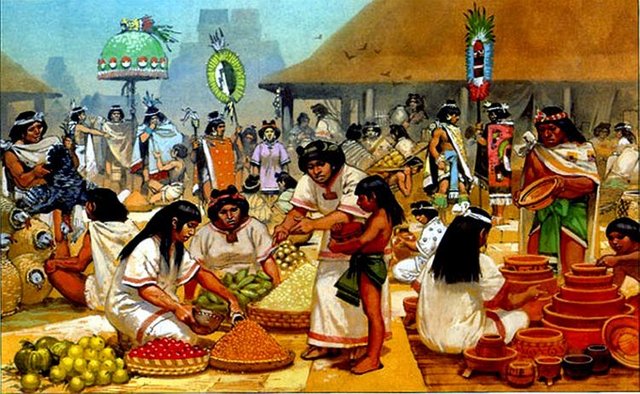
When mankind reached a better social organization, needs grew and the commercialization of goods found new instruments perfected for the exchange. Peoples expanded their markets for intermediate and final products; Perfecting its terrestrial and maritime transport systems to reach ever more with its merchandise and bring with it new unknown products in the region of origin.
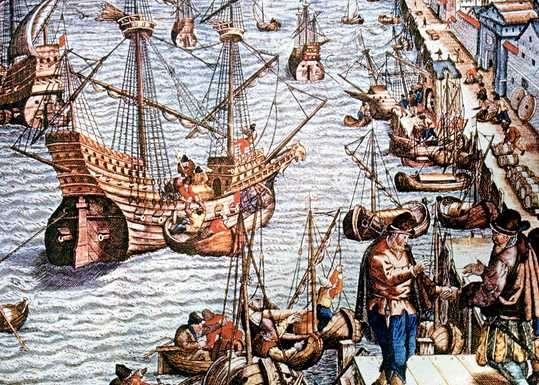
Advantage
The advantages of barter or exchange for companies are many, such as:
- Buy products or services without monetary movements.
- Maintain the liquidity of the company.
- Optimize the financial results of the business.
- Improve productivity.
- To compensate the variation of production by seasons, that is to say, to obtain more clients even in low season.
-Reduce the accumulation of inventory of products in the inventory, and find a cost-effective alternative. - Expand business relations with companies from other sectors.
- Get new business channels for the business without changing the customer agenda.
Disadvantages
Barter has several disadvantages:
- Quantitative: difficulty in exchanging goods of very different value.
- Temporal: difficult to sell today and buy tomorrow.
- Space: difficulty finding the ideal person to exchange.
Barter today
At present, it is common for barter to regain importance in times of economic crisis, and especially in cases of hyperinflation, since money loses to a great extent its value.
In this disaster of the economic crisis, the multi-barter barter system experienced explosive growth and became increasingly important for millions of unemployed people with unmet elementary needs.
The most advanced system in the world and the oldest system have joined as a result of the crisis. Internet, the great revolution of our era, allows a multitude of alternatives to get what we seek without having to pay for it. How is this possible? Thanks to the barter. One of the most talked about options on the net nowadays contemplates precisely this: to change some objects that we do not need by others that we find more useful, and without geographic limitations. Just as our ancestors did for centuries, but in a modern plan.

Let's practice El Barter in our classrooms.
It is important to teach children to barter in school, so they learn to give material value to the things they want and can offer something else, and in this way teach them to negotiate their belongings, as well as fostering creativity in them And the importance of taking care of your things.
Didactic activities we can do:
- Ask students to bring books from previous years and exchange them with other children.
- They can also bring clothes, they know that they grow and lose their clothes very fast, other children need them, they can change them for another item.
- Bring toys that are in good condition to be replaced by other toys or other items; Like stories
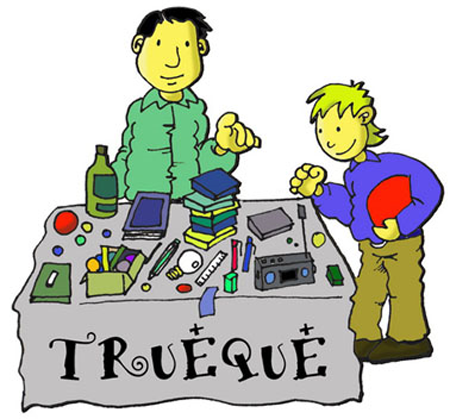
Source
References
[1] https://es.wikipedia.org/wiki/Trueque
[2] http://www.hola.com/actualidad/200904138125/trueque/crisis/economia/
[3] Tricolor Magazine: Cadenacapriles Mayo 2000/021 N° 21
Beautiful post, thank you for sharing with us ,i'm also against todays monetary system and i think barter is a better solution .In romania there are some places where once every week or once every 2 weeks who wants to sell or buy or exchange something goes with his product to that place and if he find someone interested he would sell his product for money or exchange it with other products.Followed
Hi thanks for your comment, it is of great importance to know that.
Thanks for taking my post into account
Education? The history presented here cites no evidence and even contradicts the evidence we have about the earliest societies. Search "myth of barter".
We should reintroduce bartering - and cut out the tax man.
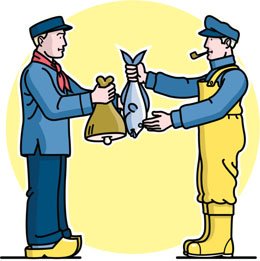
Hahaha
Very nice - I just did this with my gr 8's the other day - will show them this for extra information
thank you. I'm a teacher. I'm at rest now and I'm giving my contribution. I feel useful.
O I can relate - counting the days - one more week then I am on holiday for 3 weeks